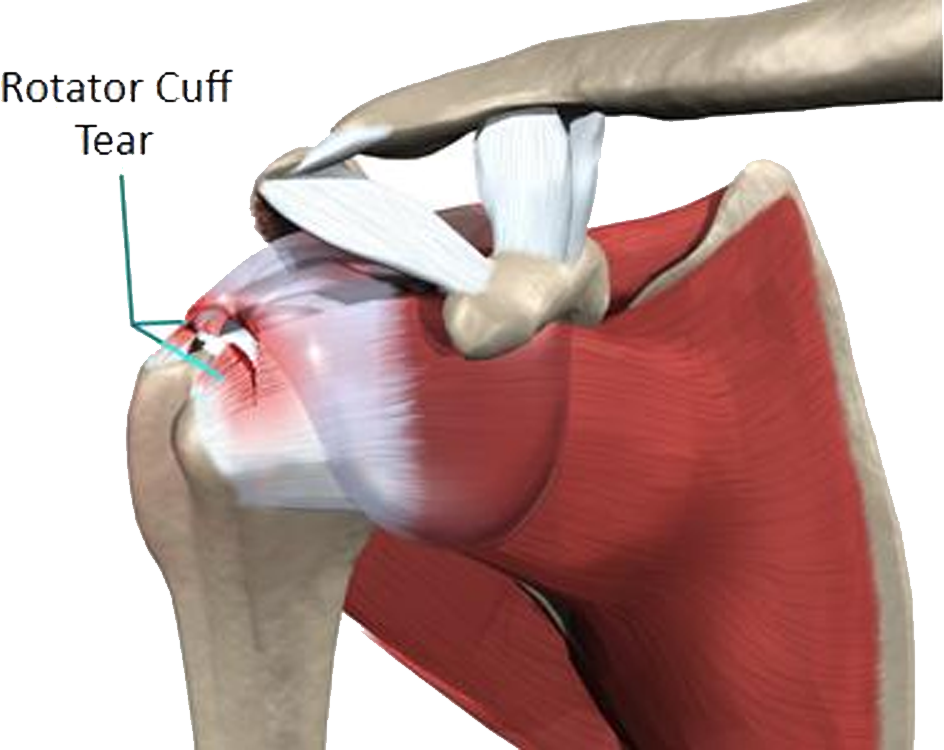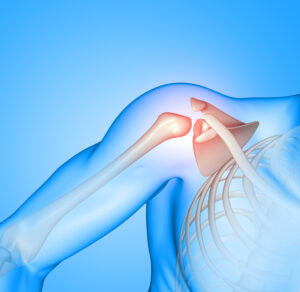Before knowing about Shoulder Rotator Cuff Injury, let us talk about it. The shoulder joint boasts the widest range of motion among all joints and is highly dynamic. The “rotator cuff,” comprised of four muscles and tendons encircling the shoulder joint, offers stability and facilitates overhead arm movement. Rotator cuff injuries frequently happen in individuals of all ages, both young and old. A fall, a sports accident, routine overhead arm movements, and tendon degradation can all result in rotator cuff issues. A torn rotator cuff can be successfully treated by Dr. Preetesh Choudhary, a specialist in shoulder conditions at CHL Hospital in Indore, assists patients in returning to their active lifestyles.
Rotator Cuff Injury

Who is at higher risk of developing a rotator cuff tear?
While rotator cuff injuries can affect anyone, certain individuals are more prone to experiencing them:
- Individuals aged 40 and above: The majority of shoulder cuff injuries stem from the natural degeneration associated with aging. By the age of 80, most adults exhibit tears in their rotator cuffs.
- Athletes: Engaging in sports involving repetitive shoulder movements heightens the likelihood of sustaining an injury. Examples include tennis, swimming, and baseball, particularly pitching.
- Occupations involving frequent overhead reaching or heavy lifting: Professions such as carpentry, construction work, and painting entail activities that increase the risk of developing rotator cuff issues.
Symptoms & Causes
What are the symptoms of a Rotator Cuff Injury?
Below are the typical indications of the tear, though individual experiences may vary:
- Repeated pain, particularly during specific activities
- Discomfort inhibiting sleep on the affected side
- Audible grating or cracking sensations during arm movement
- Restricted range of motion in the arm
- Weakness in the muscles surrounding the shoulder
The symptoms of a rotator cuff tear may resemble those of other medical conditions. It is advisable to consult your healthcare provider for an accurate diagnosis.
Causes
Rotator cuff tear commonly result from the gradual deterioration of tendon tissue over time. Continuous overhead movements or extended periods of heavy lifting can cause irritation or harm to the tendon. Additionally, a single incident such as falls or accidents can also lead to rotator cuff injuries.
Risk Factors
Certain factors may elevate the likelihood of experiencing the Shoulder injury:
- Age: The risk of injury of the shoulder rotator cuff escalates with age, with tears being most prevalent in individuals over 60.
- Occupation: Certain professions involving repetitive overhead arm movements, such as carpentry or house painting, can gradually damage the rotator cuff.
- Participation in Specific Sports: Some forms of rotator cuff injuries are more frequent among individuals engaged in sports like baseball, tennis, and weightlifting.
- Family History: Rotator cuff injuries may have a hereditary aspect, as they seem to occur more frequently within certain families.
How are rotator cuff injuries identified?
Alongside a thorough medical background check and physical examination, diagnostic methods for injuries in cuff might encompass:
- X-ray imaging;
- MRI scanning.
Injuries of the rotator cuff can be manifested as either a partial or complete tear, with partial tears leaving the tendon connected to the shoulder to some extent.
What are the options for treating rotator cuff injuries?
The appropriate treatment strategy depends on factors such as age, the severity of discomfort, and whether the injury occurred suddenly or gradually due to wear and tear.
Common treatments typically involve:
- Rest
- Application of ice or cold packs to alleviate soreness
- Pain-relieving medications like ibuprofen or aspirin to reduce pain and inflammation
- Physical therapy regimens aimed at strengthening the shoulder and enhancing mobility
- In cases where other treatments prove ineffective in managing pain, a corticosteroid injection into the shoulder joint may be recommended
For rotator cuff tendinitis and bursitis, ultrasound therapy might be incorporated into the treatment plan. If symptoms persist after 6 to 12 months, surgery could be considered.
